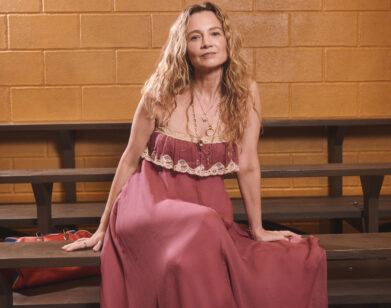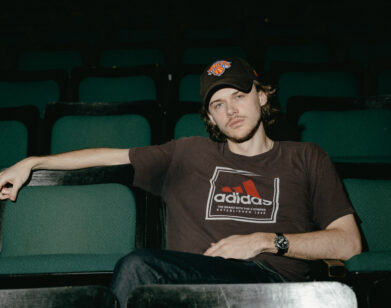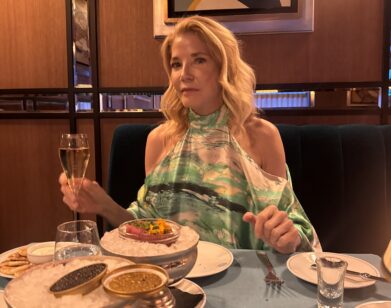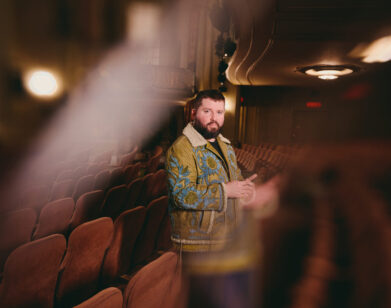There’s a new queen Off-Broadway and his name is Michael Urie
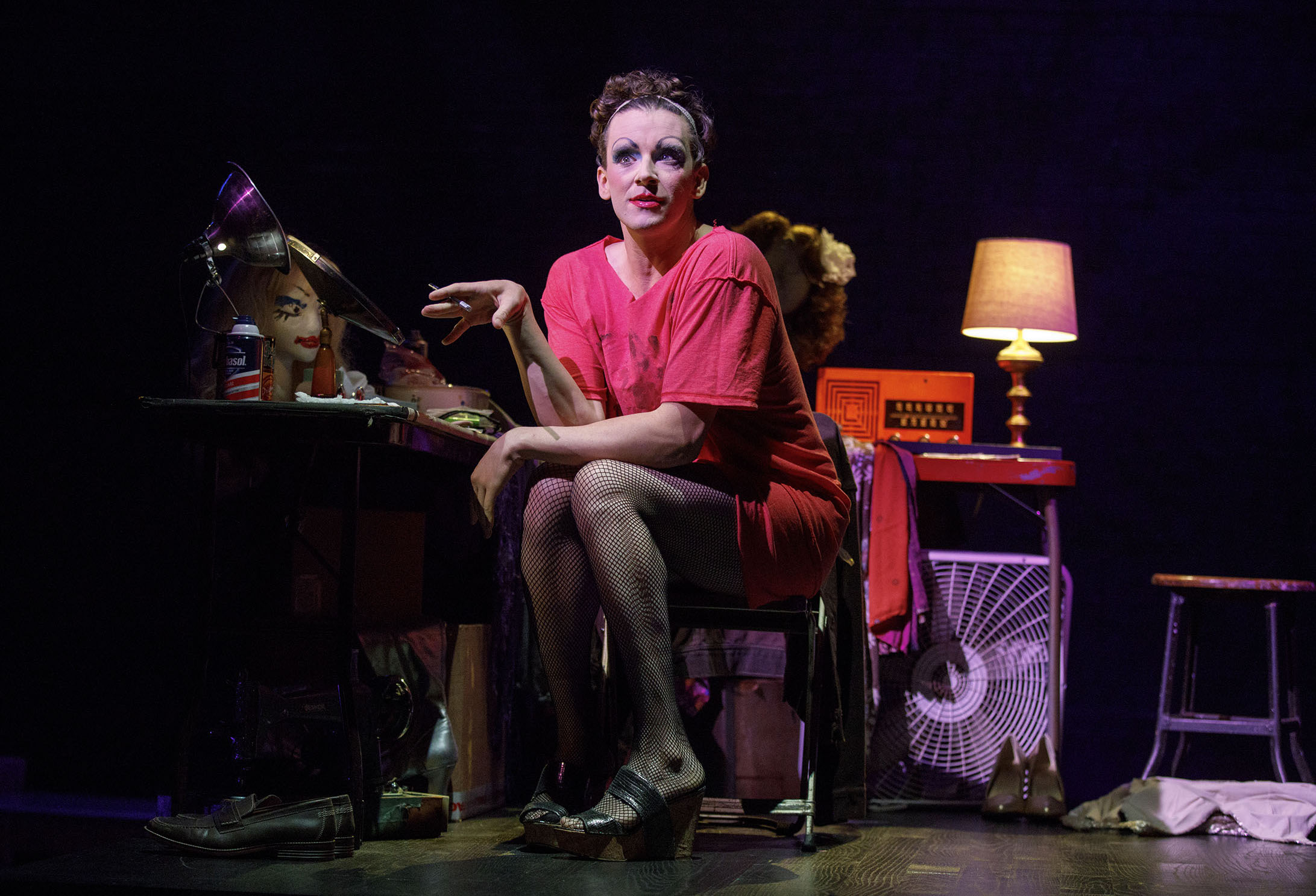 MICHAEL URIE IN TORCH SONG.
MICHAEL URIE IN TORCH SONG.
“I just want to be loved—is that so wrong?” Michael Urie asks, in character as the lead of Torch Song, Arnold Beckoff. It opened late last month in a new Off-Broadway production at Second Stage Theater.
Arnold—a gay, Jewish drag queen living in helter skelter ’70s New York City—spends the play grappling with that very question, and Urie brings Arnold to life with a charisma that can inspire empathy in even the most hardened of hearts.
Best known for his role on the long-running ABC series Ugly Betty, as Betty’s (America Ferrera) flamboyantly gay and impeccably dressed nemesis, Marc St. James, Urie has found quick success since graduating from Juilliard in 2002. After landing roles in several Off-Broadway shows, the Texas native made his debut on the Great White Way in 2012, as Bud Frump in the revival of How to Succeed in Business Without Really Trying.
Now, Urie is taking the flame from Harvey Fierstein, Torch Song’s writer and director, who starred as Arnold for its Broadway premiere in 1982.
Groundbreaking at that time for the way it openly deals with queer identity, Torch Song is no less relevant as the LGBT community continues to fight for visibility, among other basic rights. To that end, Urie and his longtime friend, Transparent star Judith Light—herself a Broadway legend—hopped on the phone for a conversation about coming of age, and coming into yourself.
JUDITH LIGHT: You go from one genius thing to another. Are you just the happiest person in the world?
MICHAEL URIE: The world is such a shit show, but I am definitely keeping my eyes open. The honor of not just the role of Arnold but also the string of great parts in theater is not lost on me. But especially this role, I mean, my god…
LIGHT: It’s breathtaking.
URIE: It’s such a beast, this role! It’s epic, it’s exhaustive and it goes from a kid, who at the beginning of the play is a kid who thinks he knows everything but doesn’t know a damn thing and at the end of the play he’s an adult who knows he doesn’t know anything. Really the end of the play is kind of the beginning. Before I started, and actually still, every time we do it, I can’t get to the end of the play without crying. It’s funny because you often think of coming of age stories as being about teenagers or young adults, but this is a young man who becomes a man.
LIGHT: Do you think that’s what makes it so relevant today as much as it was relevant so many years ago when Harvey first wrote it?
URIE: I think so, yes. I think that that is ultimately why it’s universal and why when it was on Broadway, it ran forever and toured all over the country. Even if you’re not a gay person or a Jewish person or a drag queen, or any of the things that Arnold is, you relate to him because of the way he grows up before your eyes. Even if you’ve never been in love with a guy who can’t bring himself to be in love with another guy, you’ve been in love with somebody who’s been unavailable. Everybody knows that feeling, everybody knows what it’s like to fall for the hopeless. So by the end of the play, I think you can see yourself in Arnold and you can see yourself up there.
LIGHT: I think it was also so popular back then because the gay community was about to become of age. It was moving into a very powerful position.
URIE: And in so many ways Harvey was a prophet.
LIGHT: There’s no question. The play was called Torch Song Trilogy, and it was longer before. Were you a part of making those cuts or did Harvey bring it to you in this way?
URIE: It came to me in this way, and I think that Harvey had been, over the years, approached many times about doing a revival and he always said no.
LIGHT: Totally. But in this production, it’s so seamless. You move from one to the other and there’s sort of no stopping of it. It’s a train: once you get on it, you just go.
URIE: Yeah, and that’s Moisés [Kaufman’s] genius.
LIGHT: Talk to me about working with him.
URIE: Oh, he’s wonderful, he’s such a creature of the theater; he breathes it. He brings so much to the table yet lets everything wash over him and lets everybody else bring what they have to the table as well. That’s the reason he dropped “Trilogy” from the title; he felt like over the years, the scope and size of the play, physically, was too much for people to produce even though people wanted to produce it.
LIGHT: Talking about Moisés, it reminds me that you direct and also produce. Did you learn something new in the way you would direct the next thing you would do from Moisés, or the way you look at a script from the way you worked with Harvey?
URIE: Yes. I’ve never done a play like this, in that it’s three distinct styles of theater that need to be encompassed in one. Everything stems from Harvey and what a brilliant 28-year-old he was when he wrote this.
LIGHT: 28, can you believe it?
URIE: I mean, you knew me when I was 28, I could barely wipe my ass.
LIGHT: Hello! You were in How to Succeed on Broadway, sweetie, I’ve seen you do everything. I’ve watched your incredible growth. We’re talking about the boy from Plano, Texas. What I see in you is this incredibly generous, open, available attitude that really connects people and teams. I’m not talking about something that happened overnight, I’m talking about the hard work that you put in.
URIE: I think hard work is such a big part of it and the theater is a place that doesn’t always but can reward hard work and tenacity, unlike television. Understandably, they have access to anyone in the world, projects come about the way that they come about and often, you fit the bill and that’s how you get work in TV. I ended up on Ugly Betty because it was just a good match, not because I’d earned it.
LIGHT: Do you think that your life has informed your art? You’re right if they were going for a Harvey Fierstein-type that is correct, they wouldn’t be going for you. What pieces of you do you think made them go for you?
URIE: I think so. This is sort of the culmination of not only growing up myself and being in this committed relationship for so long, having had successes and failures along the way. But also in some ways, I’ve grown up on stage, in theater. From The Temperamentals to Angels in America to Homos last year at the Labyrinth, and Buyer & Cellar, certainly. And in a lot of ways, this is the granddaddy of all of those plays. Without this play, those plays could not have been.
LIGHT: I remember us sitting at Chez Josephine near Playwrights Horizons and talking about what it was going to look like, what was life going to be like now. Also, I remember Herb, my manager for 36 years said to me at the beginning of working together, “You have to think of yourself like a bottle of ketchup, you’re a commodity and you have to be careful that you don’t take everything personally.” So when you take something personally, how do you handle that?
URIE: Well, it’s a constant reminder that you’re just a bottle of ketchup and maybe that person hates tomatoes.
LIGHT: [laughs] Do you think your attitude comes from just who you are in your being or do you think that has been affected by your parents, who you know I happen to adore?
URIE: I think so. They never once stood in my way and they would nudge me in directions early on, they would never force me to finish something that was a terrible match. I was in marching band, which I loved, but ultimately I had to decide between marching band and drama and I remember my dad at the time being like, “Are you sure? You love marching band.” Then pretty quickly it became clear that drama was working out a lot better than marching band. I mean, I was lousy at marching band, I was terrible at the French horn.
LIGHT: Oh my god, I would give anything to have a picture of you in the outfit with the French horn.
URIE: I think that can be arranged, Judith Light.
TORCH SONG RUNS UNTIL DECEMBER 9, 2017, AT SECOND STAGE THEATER IN NEW YORK.

